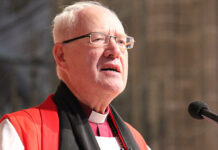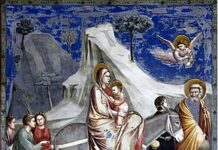The Superior General of the Society of Jesus, the Jesuits, told an Italian magazine this week Satan was not a real being, but a symbolic expression of evil.
In an interview with Tempi entitled «Il diavolo esiste solo come realtà simbolica» (“The devil exists only as a symbolic reality”) published on 21 Aug 2019, Fr. Arturo Sosa Abascal S.J. was asked if the devil existed.
He responded:
In diversi modi. Bisogna capire gli elementi culturali per riferirsi a questo personaggio. Nel linguaggio di sant’Ignazio è lo spirito cattivo che ti porta a fare le cose che vanno contro lo spirito di Dio. Esiste come il male personificato in diverse strutture ma non nelle persone, perché non è una persona, è una maniera di attuare il male. Non è una persona come lo è una persona umana. È una maniera del male di essere presente nella vita umana. Il bene e il male sono in lotta permanente nella coscienza umana, e abbiamo dei modi per indicarli. Riconosciamo Dio come buono, interamente buono. I simboli sono parte della realtà, e il diavolo esiste come realtà simbolica, non come realtà personale.
[In different ways. We need to understand the cultural elements when refering to this character. In the language of Saint Ignatius it is an evil spirit that leads you to do things that go against the spirit of God. It exists as the evil personified in different structures but not in people, because it is not a person, it is a way of implementing the bad. He is not a person like a human person. It is a way of evil to be present in human life. Good and evil are in a permanent struggle in human consciousness, and we have ways to refer to them. We recognize God as good, entirely good. Symbols are part of reality, and the devil exists as a symbolic reality, not as a personal reality.]
The Venezualan Jesuit’s remarks appear to contradict the Catechism of the Catholic Church: 395, which states: “The power of Satan is, nonetheless, not infinite. He is only a creature, powerful from the fact that he is pure spirit, but still a creature. He cannot prevent the building up of God’s reign. Although Satan may act in the world out of hatred for God and his kingdom in Christ Jesus, and although his action may cause grave injuries – of a spiritual nature and, indirectly, even of a physical nature- to each man and to society, the action is permitted by divine providence which with strength and gentleness guides human and cosmic history. It is a great mystery that providence should permit diabolical activity, but “we know that in everything God works for good with those who love him.”
Fr. Sosa’s comments do not reflect new beliefs for the Jesuit leader. In May 2017 he told the Spanish newspaper El Mundo Satan was merely symbolic. “We have formed symbolic figures such as the Devil to express evil.”
An ally of Pope Francis, Fr. Sosa is the first South American superior general of the Society of Jesus, and is under the jurisdiction of the bishop of Rome. Critics have charged Fr. Sosa with promoting an Anglican understanding of doctrine and discipline.
His remarks are in line with the creation of an alternative Baptismal liturgy approved by the Church of England’s General Synod in 2015. In Common Worship, the mainstream lirurgy, the priest asks the parents and godparents: “Do you reject the Devil and all rebellion against God?” to which they reply: “I reject them.” The priest then asks whether they “renounce the deceit and corruption of evil” and “repent of the sins that separate us from God and neighbour.”
In the new wording they are asked to “turn away from sin” and “reject evil.” They are also asked merely to “stand bravely” against the forces of evil.The alternative liturgy approved by Synod removed all references to the devil after a liturgical committee held the inclusion of Satan as “personified evil” was “unhelpful” as it was likely to be “misunderstood” by young people. The word “fight” was also removed from the liturgy to give the services a more pacifist tone.
However, an earlier draft that abandoned references to sin was rejected after complaints were lodged the new service missed the point of baptism.
In his address to synod in presenting the alternative liturgy the Bishop of Truro, the Rt. Rev. Timothy Thornton, said: “This is seen as a posture of confident resistance rather than an aggressive act and it deliberately stops short of the word ‘fight”,” adding: “Those who work with young people gave consistent advice that references to the Devil are likely to be misunderstood in today’s culture.”



